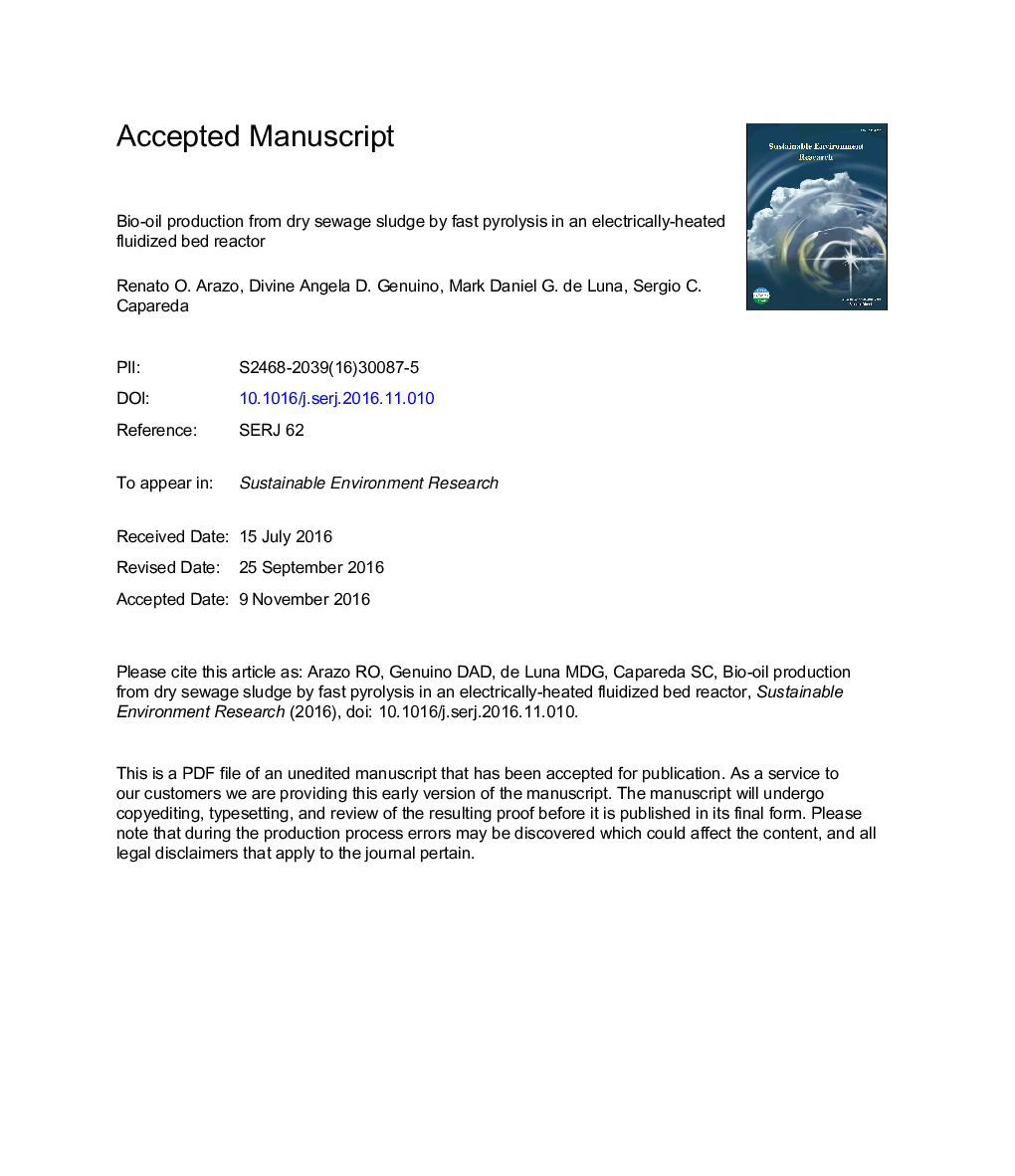| Article ID | Journal | Published Year | Pages | File Type |
|---|---|---|---|---|
| 8862979 | Sustainable Environment Research | 2017 | 31 Pages |
Abstract
The optimization of bio-oil produced from sewage sludge using fast pyrolysis in a fluidized bed reactor was investigated. Effects of temperature, sludge particle size and vapor residence time on bio-oil properties, such as yield, high heating value (HHV) and moisture content were evaluated through experimental and statistical analyses. Characterization of the pyrolysis products (bio-oil and biogas) was also done. Optimum conditions produced a bio-oil product with an HHV that is nearly twice as much as lignocellulosic-derived bio-oil, and with properties comparable to heavy fuel oil. Contrary to generally acidic bio-oil, the sludge-derived bio-oil has almost neutral pH which could minimize the pipeline and engine corrosions. The Fourier Transform Infrared and gas-chromatography and mass spectrometry analyses of bio-oil showed a dominant presence of gasoline-like compounds. These results demonstrate that fast pyrolysis of sewage sludge from domestic wastewater treatment plant is a favorable technology to produce biofuels for various applications.
Related Topics
Life Sciences
Environmental Science
Environmental Engineering
Authors
Renato O. Arazo, Divine Angela D. Genuino, Mark Daniel G. de Luna, Sergio C. Capareda,
